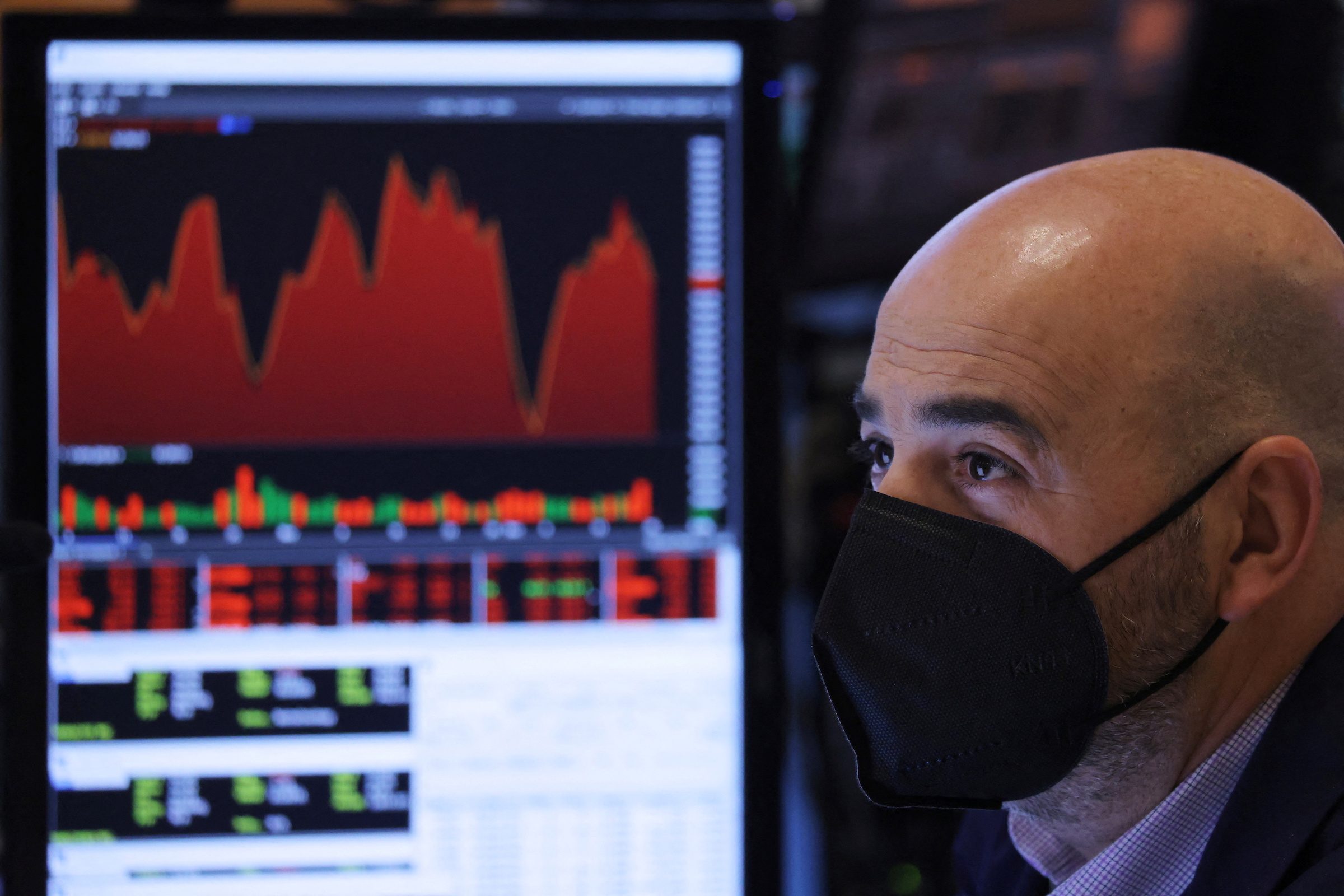SUMMARY
This is AI generated summarization, which may have errors. For context, always refer to the full article.

NEW YORK, USA – US stocks ended trading on Monday, December 20, down by more than 1%, pressured lower by surging Omicron coronavirus cases and a possible fatal blow to a $1.75-trillion US domestic spending bill, with oil prices plunging.
US stock indexes retreated more than 1% as positive COVID-19 case counts rose and President Joe Biden’s social spending and climate bill hit a significant setback. US COVID-19 cases have risen 50% this month, and the World Health Organization has said that cases are doubling in one and a half to three days in areas with community transmission.
Oil investors feared that new restrictions, which European countries are implementing, would weigh on fuel demand, sending crude prices lower.
“It was kind of a triple whammy on the economy over the weekend: Omicron, the Fed, and taking the fiscal initiative off the table,” said Jack Ablin, chief investment officer at Cresset Capital Management. “The market is taking a hit. I think it’s an economic reset that investors are kind of gauging.”
The economic scare comes after the Federal Reserve decided last week to end its pandemic-era stimulus more quickly, with the central bank signaling at least three quarter-percentage-point interest rate hikes by the end of 2022.
In light of rising COVID-19 cases, the World Economic Forum postponed its annual meeting, which had been due to take place in the Swiss mountain resort of Davos in January, until mid-2022.
Some economists expect the US economy to grow more slowly next year after US Senator Joe Manchin, a conservative Democrat who is key to Biden’s hopes of passing the investment bill, said on Sunday, December 19, he would not support the package.
The Dow Jones Industrial Average closed 1.23% lower at 34,932.16, while the S&P 500 ended the day down 1.14% at 4,568.02. The Nasdaq Composite dropped 1.24% to 14,980.94.
MSCI’s gauge of stocks across the globe shed 1.35%.
Oil prices dropped amid concerns the spread of the Omicron variant would crimp demand for fuel.
US crude recently fell 2.12% to $69.22 per barrel and Brent was at $72.01, down 2.05% on the day.
While coronavirus restrictions cloud the outlook for economic growth, they also risk keeping inflation elevated, prompting central banks to consider raising rates.
The dollar came under pressure on Monday as US Treasury yields slipped. The dollar index fell 0.137%. In recent weeks it has rallied, and is up about 7% for the year.
The yield on the three-year Treasury note was down 1.9 basis points at 0.9069% in afternoon trading, while yields on longer-term government debt rose throughout the day. – Rappler.com
Add a comment
How does this make you feel?


![[Time Trowel] Evolution and the sneakiness of COVID](https://www.rappler.com/tachyon/2024/02/tl-evolution-covid.jpg?resize=257%2C257&crop=455px%2C0px%2C1080px%2C1080px)












There are no comments yet. Add your comment to start the conversation.